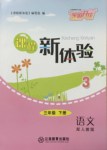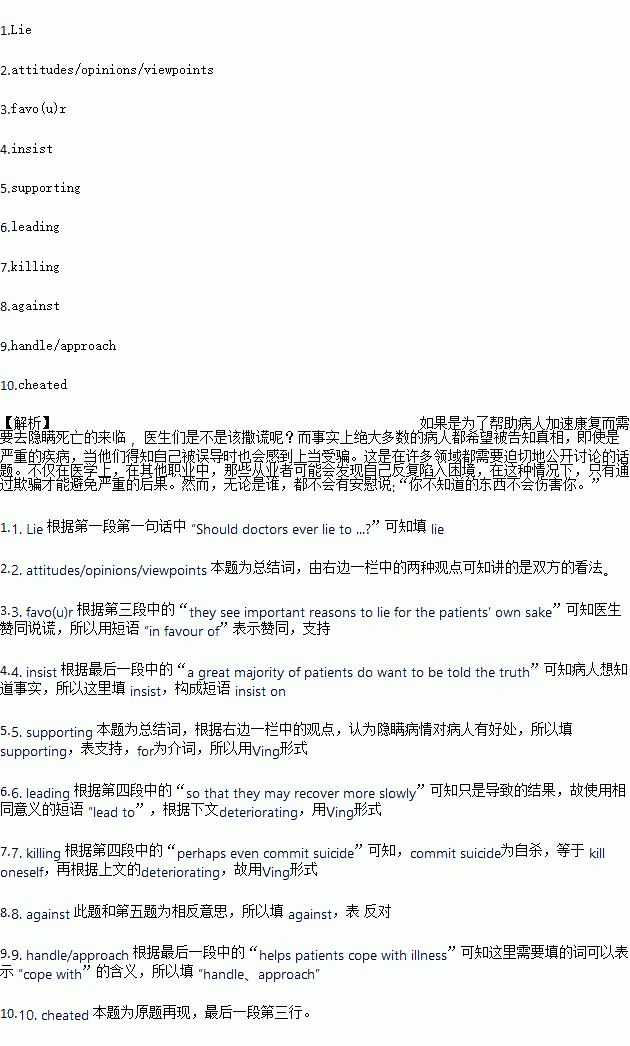题目内容
Should doctors ever lie to benefit their patients to speed recovery or to cover the coming of death? In medicine as in law, government, and other lines of work, the requirements of honesty often seem dwarfed by greater needs; the need to protect patients from brutal news, to uphold a promise of secrecy or to advance the public interest.
What should doctors say, for example, to a 46-year-old man coming in for a routine physical checkup just before going on vacation with his family who, though he feels in perfect health, is found to have a form of cancer that will cause him to die within six months? Is it best to tell him the truth? If he asks, should doctors reject that he is ill, or minimize the gravity of the illness? Should they at least hide the truth until after the family vacation?
Doctors face such choices often. At times, they see important reasons to lie for the patients’ own sake; in their eyes, such lies differ sharply from self-serving ones.
Studies show that most doctors sincerely believe that the seriously ill patients do not want to know the truth about their condition, and that informing them of risks destroys their hope, so that they may recover more slowly, or deteriorate faster, perhaps even commit suicide.
But other studies show that, contrary to the belief of many physicians, a great majority of patients do want to be told the truth, even about serious illness, and feel cheated when they learn that they have been misled. We are also learning that truthful information, humanely conveyed, helps patients cope with illness; help them tolerate pain better with less medicine, and even recover faster after surgery.
There is an urgent need to debate this issue openly. Not only in medicine, but in other professions as well, practitioners may find themselves repeatedly in difficulty where serious consequences seem avoidable only through deception. Yet the public has every reason to know the professional deception, for such practices are peculiarly likely to become deeply rooted, to spread, and to trust. Neither in medicine, nor in law, government, or the social sciences can there be comfort in the old saying, “What you don’t know can’t hurt you.”
Title: 1. Or Not
Different 2. | ·Most doctors are in 3. of lying for the patients’ own sake. |
·A great majority of patients 4. on being told the truth. | |
Reasons for 5. lying to patients | ·Informing patients of the truth about their condition destroys their hope, 6. to recovering more slowly, or deteriorating faster, perhaps even 7. themselves. |
Reasons 8. lying to patients | ·The truthful information helps patients to 9. their illness, help them tolerate pain better with less medicine, and even recover faster after surgery. ·Most patients feel 10. when they learn that they have been misled. |
 芝麻开花课程新体验系列答案
芝麻开花课程新体验系列答案
